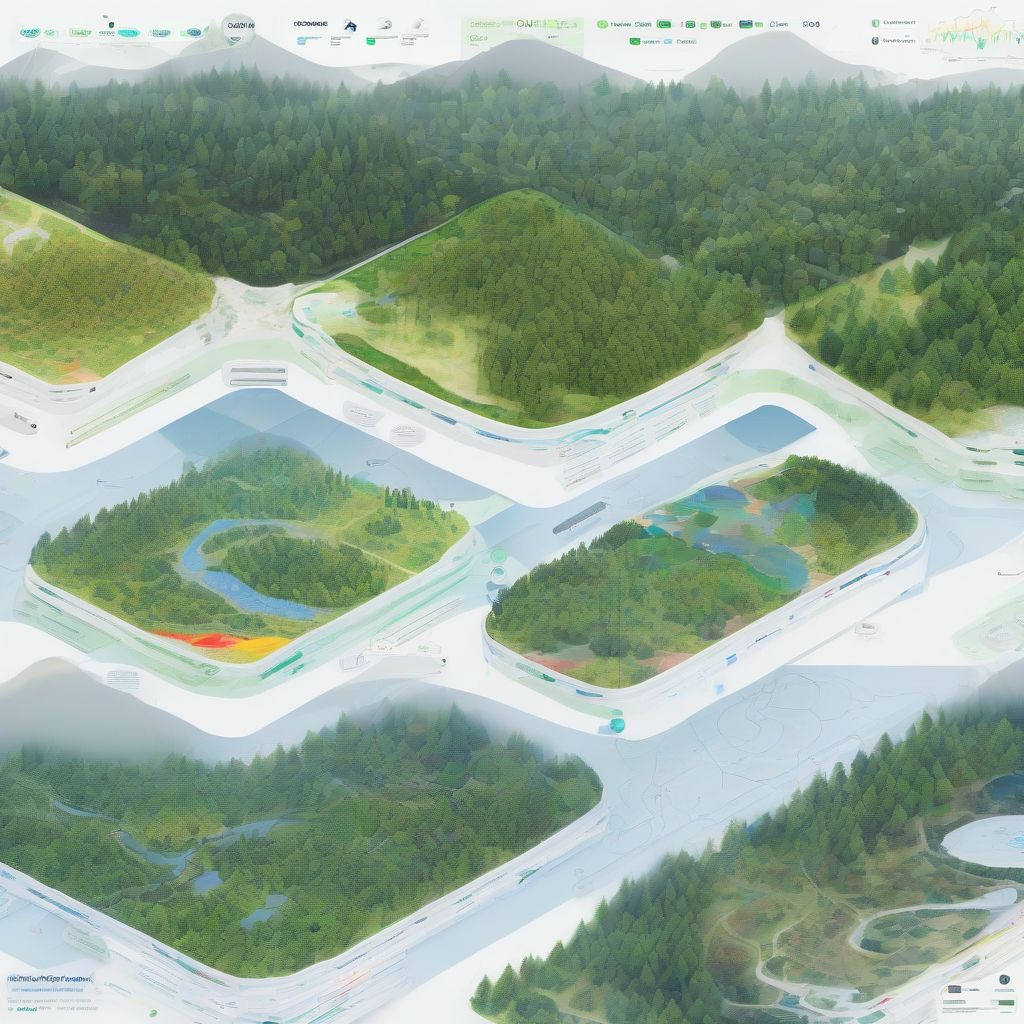Imagine a world where technology doesn’t just simplify our lives but also helps heal our planet. It sounds like science fiction, right? But what if I told you that artificial intelligence, the very technology often portrayed as futuristic and complex, is stepping up as an unexpected hero in the fight against climate change?
Unpacking the Climate Crisis: A Complex Challenge
Before we dive into the solutions, let’s take a moment to understand the problem. Climate change is a multifaceted beast, driven by a multitude of factors, all interconnected and influencing each other.
Think of it like a giant jigsaw puzzle where each piece represents an aspect of the problem – rising greenhouse gas emissions from fossil fuels, deforestation disrupting natural carbon sinks, unsustainable agricultural practices, and even the way we consume and dispose of goods.
This intricate puzzle demands innovative solutions, and that’s where AI enters the scene, armed with its ability to analyze vast datasets, identify patterns, and make predictions with remarkable accuracy.
 AI Analyzing Environmental Data
AI Analyzing Environmental Data
AI on the Front Lines: How AI is Tackling Climate Change
AI isn’t just a passive observer; it’s actively rolling up its sleeves and getting to work. Here are some of the remarkable ways AI is being deployed in the battle against climate change:
1. Optimizing Energy Production and Consumption:
- Smart Grids: AI is the mastermind behind smart grids, optimizing energy distribution by predicting demand and integrating renewable energy sources seamlessly. Imagine a future where your home appliances automatically adjust their energy consumption based on real-time energy availability and pricing.
- Energy Efficiency: From optimizing industrial processes to designing more energy-efficient buildings, AI is playing a crucial role in reducing our overall energy footprint.
2. Revolutionizing Transportation:
- Electric Vehicles: AI is the driving force behind self-driving cars and optimizing electric vehicle performance, paving the way for a future of cleaner transportation.
- Traffic Optimization: Imagine AI-powered traffic management systems that minimize congestion, reducing idling times and fuel consumption.
3. Monitoring and Protecting Our Environment:
- Deforestation Detection: AI is like a watchful guardian, using satellite imagery to detect deforestation in real-time, allowing for rapid response and prevention.
- Precision Agriculture: AI is transforming agriculture by optimizing irrigation, fertilizer use, and pest control, minimizing environmental impact and maximizing yields.
4. Climate Modeling and Prediction:
- Enhanced Climate Models: AI is enabling scientists to develop more accurate climate models, providing crucial insights into future climate scenarios and informing mitigation strategies.
- Extreme Weather Prediction: AI is improving the accuracy of extreme weather event predictions, enabling better preparedness and disaster response.
The Power of Collaboration: Humans and AI Working Together
It’s crucial to remember that AI is not a silver bullet solution. Instead, it’s a powerful tool that, when wielded effectively by human experts, can significantly accelerate our progress towards a more sustainable future.
Think of it as a partnership – humans providing the ingenuity, creativity, and ethical guidance, while AI offers its analytical prowess, speed, and scalability. Together, we can create a formidable force against climate change.
The Road Ahead: Challenges and Opportunities
While the potential of AI in combating climate change is undeniable, there are challenges we need to address:
- Data Bias: AI algorithms are only as good as the data they are trained on. Biased data can lead to biased outcomes, underscoring the importance of diverse and representative datasets.
- Ethical Considerations: As with any powerful technology, ethical considerations must be at the forefront of AI development and deployment, ensuring transparency, fairness, and accountability.
Conclusion: Embracing AI for a Sustainable Future
The fight against climate change is a race against time, and AI has emerged as an invaluable ally. From optimizing energy consumption to revolutionizing transportation and protecting our environment, AI is already making a tangible impact.
As we continue to refine AI technologies and address the ethical considerations, we unlock even greater potential for a greener, more sustainable future. It’s a future where humans and AI work together, not as competitors, but as collaborators in our shared mission to preserve our planet for generations to come.
[amazon bestseller=”climate change”]
Let me know your thoughts! How do you envision AI shaping the future of climate action? Share your insights and join the conversation!
